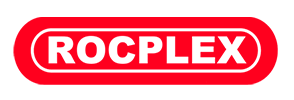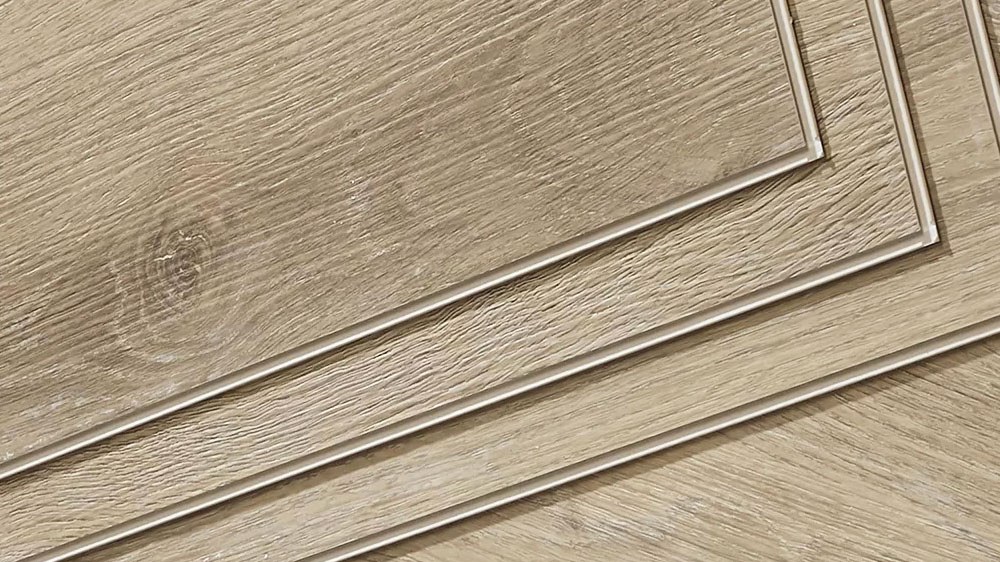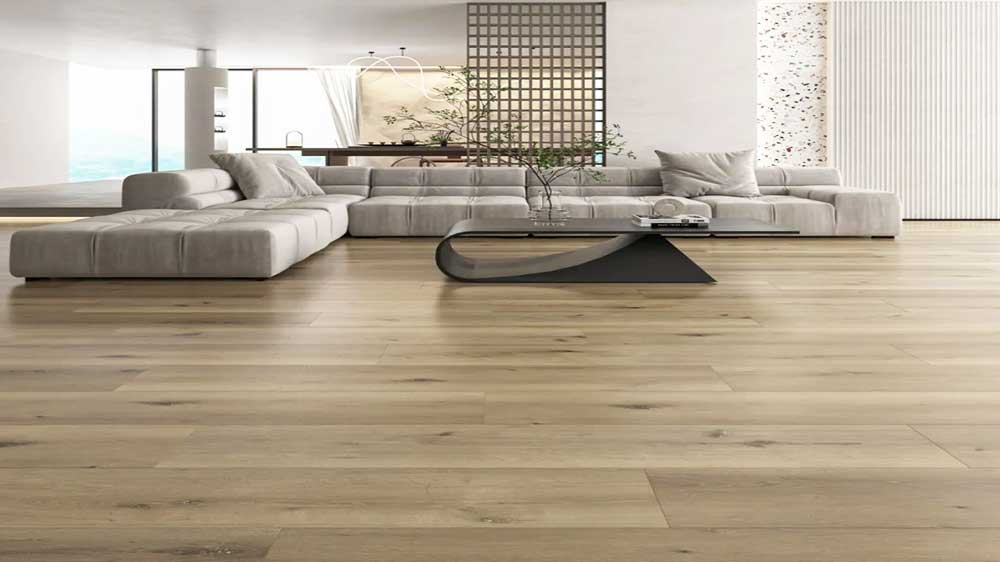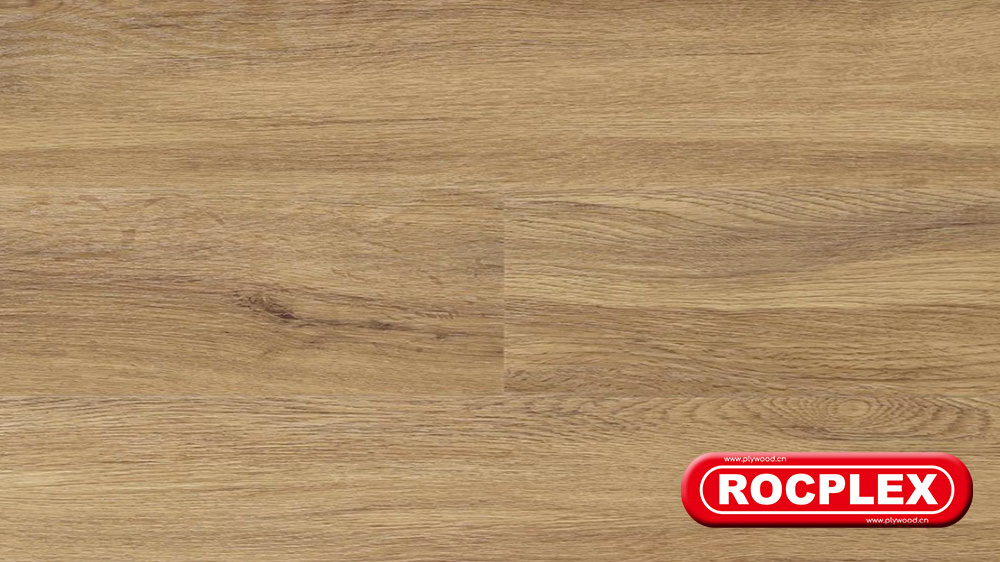What is Flooring Vinyl?
Flooring vinyl has become a top choice in home and commercial spaces due to its durability, water resistance, and variety of styles. Known for mimicking hardwood, tile, and stone appearances, vinyl flooring is a budget-friendly alternative that combines aesthetics with functionality. Unlike traditional hardwood, vinyl floors withstand heavy foot traffic, moisture, and spills, making them ideal for bathrooms, kitchens, and basements.
Vinyl flooring comprises multiple layers that enhance its durability and moisture resistance. The protective top layer provides scratch resistance, and beneath that is the printed design layer, offering visuals of natural materials. The core layer varies by type: rigid cores are typical in waterproof vinyl, while flexible cores suit traditional vinyl. Below, we delve into the benefits, types, and comparisons of flooring vinyl, examining how it matches up against other popular choices like waterproof laminate and tile.
Benefits of Flooring Vinyl
1. Durability and Resilience
- Flooring vinyl is known for its resilience in high-traffic areas. The surface is tough enough to handle daily wear while being softer than traditional tile or wood.
2. Waterproof and Water-Resistant Options
- Vinyl flooring includes both water-resistant and waterproof options. These features make vinyl a viable choice for moisture-prone areas, where other flooring might suffer damage.
3. Ease of Maintenance
- Vinyl flooring requires minimal upkeep, needing only regular sweeping and occasional mopping to stay in top condition.
Types of Flooring Vinyl
Waterproof Vinyl Flooring
What is Waterproof Vinyl Flooring?
Waterproof vinyl flooring is specifically designed to prevent water penetration, thanks to a rigid core layer that keeps moisture at bay. This makes it a favorite for bathrooms, kitchens, and basements.
Benefits of Waterproof Vinyl
Waterproof vinyl combines beauty with practicality, offering peace of mind in high-moisture areas. The sturdy core prevents warping or buckling, extending the lifespan of the floor.
Installation
Waterproof vinyl often features a click-lock installation, making it suitable for DIY projects.
Water-Resistant Vinyl Flooring
What is Water-Resistant Vinyl Flooring?
Water-resistant vinyl flooring offers moderate moisture protection but is not entirely waterproof. While it can handle occasional spills, it is better suited for areas like living rooms or bedrooms rather than bathrooms or kitchens.
Benefits of Water-Resistant Vinyl
This type of vinyl flooring is typically softer underfoot, offering a comfortable surface that mimics hardwood or tile.
Installation
Water-resistant vinyl is often glued down or uses peel-and-stick methods, providing more flexibility.
Luxury Vinyl Tile (LVT) and Plank (LVP)
What are LVT and LVP?
LVT and LVP are high-end vinyl options that mimic the look of stone or wood. They’re available in tiles and planks, with detailed textures and realistic visuals.
Why Choose LVT or LVP?
Luxury vinyl products like LVT and LVP bring premium visuals without premium prices. They are more rigid, offering the look and feel of real hardwood or stone with the benefits of vinyl.
Flooring Vinyl vs. Other Waterproof Flooring Options
1. Flooring Vinyl vs. Waterproof Laminate
Appearance
Laminate flooring offers a close-to-natural look but lacks the flexibility of vinyl in moisture-prone areas. Vinyl, especially in luxury formats, often provides better realism in visuals and texture.
Water Resistance
Vinyl generally outperforms laminate in moisture resistance. While some laminate is water-resistant, it’s not completely waterproof, meaning vinyl is better suited for bathrooms or basements.
Durability
Both materials are durable; however, vinyl’s flexibility makes it more resilient under stress.
2. Flooring Vinyl vs. Waterproof Tile Flooring
Appearance and Style
Tile has been a traditional choice for kitchens and bathrooms due to its durability and water resistance. Vinyl, however, offers similar benefits at a lower cost and with easier installation options.
Cost Efficiency
Vinyl tends to be more affordable than tile and is simpler to install, especially for DIY homeowners.
Maintenance
Vinyl requires less maintenance compared to tile, which often needs regular grout cleaning.
Key Considerations When Choosing Flooring Vinyl
Thickness and Core Type
- Thicker vinyl with a rigid core offers better durability and noise reduction, making it ideal for high-traffic areas. Flexible-core vinyl is typically thinner and more suited for low-traffic areas.
Wear Layer
- The wear layer protects against scratches and stains. A thicker wear layer is beneficial for areas with heavy use, such as entryways or commercial spaces.
Installation Method
- Click-lock vinyl planks are ideal for DIY projects, while glue-down vinyl suits areas where stability is crucial, such as in commercial settings.
Popular Applications for Flooring Vinyl
Kitchen and Bathroom Flooring
- Vinyl’s water resistance makes it a favorite in kitchens and bathrooms. Waterproof vinyl flooring is especially beneficial in bathrooms where moisture is a constant concern.
Basement and Laundry Rooms
- Basements and laundry rooms benefit from waterproof vinyl, as these spaces are prone to humidity and occasional water exposure.
Commercial Spaces
- For commercial areas, vinyl offers the durability needed to handle foot traffic while keeping maintenance costs low.
How to Care for Flooring Vinyl
Regular Cleaning
- Sweeping or vacuuming the floor daily helps prevent dirt buildup. Occasional mopping with a vinyl-safe cleaner maintains shine without compromising the waterproof layer.
Avoiding Abrasives
- Use gentle cleaning tools and avoid abrasive brushes or chemicals, which can damage the protective layer.
Preventing Scratches
- Placing rugs at entry points and using felt pads under furniture legs helps prevent scratches on vinyl floors.
Advantages of Waterproof and Water-Resistant Vinyl Options
Waterproof vinyl is ideal for areas with frequent spills or high moisture, while water-resistant vinyl suits areas that need moderate protection. Both options offer flexibility in design and function, allowing you to tailor your choice based on room needs and budget.
Flooring Vinyl for Different Design Aesthetics
Modern and Minimalist Spaces
- Vinyl flooring is versatile, making it a fitting choice for sleek, minimalist designs. Opt for neutral tones or light-colored vinyl planks to enhance the clean, open feel typical of modern spaces.
Rustic and Traditional Interiors
- Vinyl that mimics hardwood, especially with wood grain textures, complements rustic and traditional interiors. Luxury vinyl plank (LVP) can replicate reclaimed wood looks, providing warmth without maintenance.
Industrial and Contemporary Styles
- For industrial-style interiors, darker vinyl flooring options can create a bold aesthetic. Stone-look luxury vinyl tiles (LVT) or concrete-inspired designs enhance the modern, edgy feel associated with industrial spaces.
Flooring Vinyl and Environmental Impact
With environmental concerns growing, vinyl manufacturers are improving production methods to reduce waste and emissions. Many vinyl products today are made with recyclable materials, and some options are free from harmful chemicals. Look for certifications like FloorScore or GreenGuard, which indicate low VOC emissions, contributing to better indoor air quality.
Sustainable Vinyl Options
- Sustainable vinyl options are available that prioritize eco-friendly practices, using recycled materials and safer manufacturing processes. Some brands now offer “bio-based” vinyl that minimizes the use of PVC.
Cost Comparison: Flooring Vinyl vs. Other Flooring Options
When it comes to affordability, vinyl flooring generally has a cost advantage over hardwood, tile, and laminate. The cost varies based on factors like brand, thickness, and features (waterproof vs. water-resistant).
Budget-Friendly Vinyl
- Standard vinyl tiles and sheets are typically the most affordable option, perfect for budget-conscious renovations. They provide the essentials in durability and water resistance at a lower price point.
Luxury Vinyl as a Mid-Range Option
- Luxury vinyl options (LVP and LVT) are a bit pricier than basic vinyl but still offer a cost-effective solution compared to hardwood or tile, especially when factoring in the cost of installation and maintenance.
Flooring Vinyl Installation: DIY or Professional Help?
One of the significant advantages of vinyl flooring is its ease of installation. Homeowners can often install vinyl planks or tiles independently with minimal tools. However, some situations call for professional help to ensure quality and longevity.
DIY Installation
- Click-lock vinyl flooring is particularly DIY-friendly and requires only basic tools. This floating floor method allows planks to lock together, with no glue required.
When to Consider Professional Installation
- For glue-down vinyl or more intricate designs, professional installation ensures an even, stable surface. Professional installers are recommended for commercial spaces, where high durability and precise alignment are critical.
Comparison FAQs
- What is the difference between waterproof vinyl and water-resistant vinyl flooring?
Waterproof vinyl has a solid core that prevents water from seeping through, while water-resistant vinyl offers moderate protection, suitable for areas with occasional moisture rather than constant exposure. - Can vinyl flooring be used in bathrooms?
Yes, waterproof vinyl flooring is ideal for bathrooms due to its resistance to water and humidity, while water-resistant options are best avoided in areas with standing water. - Is vinyl flooring easy to install?
Yes, many vinyl options, especially click-lock planks, are easy to install and suitable for DIY projects. Glue-down vinyl is more complex and may require professional installation. - How does vinyl compare to laminate in terms of water resistance?
Vinyl generally offers better water resistance than laminate, especially in waterproof varieties. Vinyl is more versatile for areas with moisture, whereas laminate works best in dry rooms. - Is luxury vinyl better than regular vinyl?
Luxury vinyl often provides enhanced durability, thicker wear layers, and more realistic visuals compared to regular vinyl, making it a better choice for high-traffic areas or design-focused interiors. - Can I use vinyl flooring in a basement?
Yes, waterproof vinyl is suitable for basements due to its moisture resistance. It handles the humidity levels found in basements better than many other flooring types.
Flooring Vinyl Options Comparison Guide
Flooring vinyl offers a versatile and practical solution across various spaces, providing durability, water resistance, and a wide range of design options at an accessible price point. From waterproof varieties suited for high-moisture areas to luxury options for style-driven interiors, vinyl flooring adapts to the needs of different rooms and budgets.
Flooring Waterproof Options: Essential Guide
Post time: Dec-02-2024




